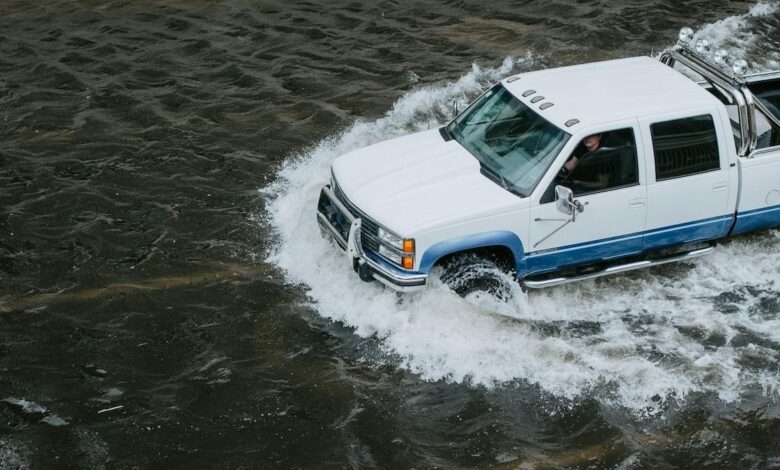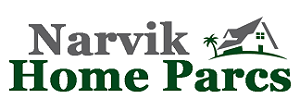South Florida Hurricane Season: Tips to Find the Best Mold Remediation Company for Water Damage

South Florida’s hurricane season, which spans from June 1 to November 30, brings intense storms, torrential rains, and a high risk of water damage that can quickly lead to mold growth. In a region where humidity hovers around 70–90% and hurricanes like Ian or Irma can leave homes soaked, mold is a persistent threat that can compromise your health and property. Choosing the right mold remediation company is often critical to effectively address water damage and prevent long-term issues. With so many companies vying for your business in South Florida, how do you find the best one? This helpful guide offers unique, practical tips tailored to South Florida homeowners to select the best mold remediation company – ensuring your home is restored safely and efficiently after hurricane-related water damage hits.
Why Mold Remediation Matters in South Florida
Hurricanes and tropical storms in South Florida often cause roof leaks, flooding, and water intrusion, creating ideal conditions for mold to thrive. Within 24–48 hours, damp drywall, carpeting, or insulation can become a breeding ground for molds like Aspergillus, Penicillium, or even toxic Stachybotrys (black mold). These can trigger health issues, from allergies and respiratory problems to more severe symptoms in sensitive individuals. Finding a reliable mold remediation company not only removes mold but also addresses the underlying water damage to prevent recurrence—crucial in South Florida’s moisture-heavy climate. Here’s how to find the best company for the job.
Tip 1: Verify Licensing and Certifications
In Florida, mold remediation is regulated, and professionals must hold specific licenses to operate legally. A licensed company ensures expertise and compliance with state standards, protecting you from subpar work.
- Check for DBPR Licensing: The Florida Department of Business and Professional Regulation (DBPR) requires mold remediators to hold a Mold Remediator License (MRSR). Verify a company’s license by entering their name or license number.
- Look for Industry Certifications: Top companies often have certifications from organizations like the Institute of Inspection, Cleaning and Restoration Certification (IICRC) or the National Organization of Remediators and Mold Inspectors (NORMI). These indicate advanced training in mold removal and water damage restoration.
Ask if the company employs a certified mold assessor (MRSA) for initial testing. In South Florida, where hidden moisture from hurricanes is common, a separate assessor ensures unbiased testing before remediation begins, avoiding conflicts of interest.
Tip 2: Prioritize Local Experience in South Florida
Hurricane-related water damage in South Florida presents unique challenges, from storm surges in Miami-Dade to flooding in low-lying areas like Homestead. A local company with experience in the region’s climate and building styles is better equipped to handle your needs.
- Seek Regional Expertise: Choose a company with a proven track record in South Florida, familiar with local issues like stucco wall moisture traps or flat-roof leaks common in Miami and Fort Lauderdale homes.
- Check Post-Hurricane Experience: Ask about their work after major storms (e.g., Hurricane Irma in 2017 or Ian in 2022). Companies experienced with hurricane recovery understand the urgency and complexity of mold issues in flooded homes.
Recent posts on social media websites from locals in areas like Palm Beach or Broward often highlight companies that excel in post-hurricane cleanup, offering insights you won’t find on generic review sites.
Tip 3: Evaluate Their Process and Technology
Not all mold remediation companies are equal in their approach. The best ones use advanced techniques and equipment tailored to South Florida’s humid environment.
- Comprehensive Assessment: A top company starts with thorough testing, including air sampling, surface sampling, and moisture detection to identify all mold sources. Ask if they use thermal imaging cameras to detect hidden water in walls, a common issue after hurricanes.
- Safe Removal Practices: Ensure they use HEPA air scrubbers, negative air pressure systems, and containment barriers to prevent spores from spreading during cleanup—a must in South Florida’s open-concept homes.
- Post-Remediation Verification (PRV): The best companies conduct PRV testing to confirm mold is fully removed, providing a detailed report with lab results.
Ask if they use eco-friendly or non-toxic antimicrobial treatments, like botanical-based solutions, to avoid harsh chemicals. This is especially important for South Florida families with children or pets sensitive to mold-related health issues.
Tip 4: Check Insurance and Warranty Offerings
Hurricane-related water damage often involves insurance claims, and a good remediation company will help navigate this process while offering guarantees for their work.
- Insurance Expertise: Choose a company experienced in working with South Florida insurers, including those offering flood policies through FEMA’s National Flood Insurance Program. They should provide detailed documentation (photos, reports, receipts) to support your claim.
- Warranties and Follow-Ups: Look for companies offering warranties on their work, typically 1–5 years, to cover potential mold regrowth. Ask about follow-up inspections, especially critical in South Florida’s humid climate.
Request a “moisture mitigation plan” as part of their service. This plan should outline how they’ll address underlying water issues (e.g., sealing leaks or improving ventilation) to prevent future mold, tailored to your home’s hurricane exposure risks.
Tip 5: Read Reviews and Ask for References
In South Florida’s competitive market, reviews and references can separate the best companies from fly-by-night operators.
- Online Reviews: Check platforms like Google, Yelp, or the Better Business Bureau (BBB) for consistent 4–5-star ratings and detailed customer feedback. Pay attention to reviews mentioning hurricane-related work in South Florida.
- Local References: Ask the remediation company for references from clients in your area (e.g., Jupiter, Fort Lauderdale, or the Keys) who dealt with similar water damage issues. Contact these clients to inquire about satisfaction and post-remediation results.
Use social media to find unfiltered, real-time feedback from South Florida homeowners. Or, Google search terms like “mold removal in Boca Raton”, “mold remediation West Palm Beach” or “water damage restoration Fort Lauderdale” to see recent posts about local companies, including warnings about scams post-storm.
Tip 6: Beware of Red Flags
South Florida’s post-hurricane chaos often attracts unscrupulous contractors. Protect yourself by avoiding these warning signs:
- No License or Insurance: Unlicensed companies or those without liability insurance are risky. Always verify credentials through the DBPR.
- Pressure Tactics: Be wary of companies pushing for immediate contracts without proper inspections, a common scam after hurricanes.
- Vague Estimates: A reputable company provides a detailed, written estimate after assessing your home. Avoid those offering verbal or overly low quotes.
Watch for companies that skip moisture testing or claim “all mold is gone” without PRV testing. In South Florida’s climate, hidden moisture can lead to rapid mold regrowth if not addressed.
Tip 7: Compare Costs, But Don’t Skimp
Mold remediation costs in South Florida vary widely, as they typically range from $1,000–$5,000 for hurricane-related water damage, depending on the extent of the problem and home size. While cost is a factor, the cheapest option often cuts corners, leading to incomplete remediation.
- Get Multiple Quotes: Request detailed estimates from at least three licensed companies, comparing scope of work, materials, and timelines.
- Understand Pricing: Ensure the quote includes testing, removal, disposal, and prevention measures. Ask about additional costs for emergency services post-hurricane.
- Tip: Ask if the company offers financing or works with FEMA or insurance adjusters to offset costs, a common practice in South Florida after major storms.
Questions to Ask Prospective Mold Remediation Companies
To narrow down your choices, ask these targeted questions:
- Are you licensed as a mold remediator by the Florida DBPR? Can I see your license number?
- How many hurricane-related mold remediation jobs have you completed in South Florida?
- What testing methods do you use to identify mold and hidden water damage?
- Do you provide a written warranty and post-remediation verification testing?
- How do you address South Florida’s high humidity to prevent mold regrowth?
- Can you provide references from local clients with similar water damage issues?
Preparing for Hurricanes, Water Damage, and Mold
South Florida’s hurricane season demands vigilance, especially when water damage invites mold into your home. Choosing the right mold remediation company can make the difference between a quick recovery and a costly, recurring problem. By prioritizing licensed, experienced, and transparent professionals with a track record in South Florida’s unique climate, you can restore your home and protect your health. Act swiftly after a storm, verify credentials, and leverage local resources like Google, Facebook, Reddit, Nextdoor, and X to find a highly trusted and reliable mold removal company that meets your needs. With these tips, you’ll navigate the post-hurricane chaos with confidence and keep mold at bay in your South Florida home.

